In today’s fast-paced world, productivity is more important than ever. Whether you’re a business professional, a student, or simply someone looking to streamline daily tasks, artificial intelligence (AI) offers a treasure trove of tools designed to enhance your efficiency. From automating mundane tasks to assisting with complex data analysis, AI tools are reshaping the way we work, learn, and even live. With so many options available, finding the best AI tools can be overwhelming. That’s why we’ve compiled a list of over 150 AI tools that will boost your productivity across various industries and tasks.
In this article, we will explore AI tools for everything from writing and content creation to project management, marketing, and customer service. Whether you’re looking to simplify your workflow, gain new insights from data, or enhance your creativity, these tools will empower you to work smarter, not harder. As we dive into each category, you’ll discover AI-driven solutions tailored to specific needs, helping you maximize your time and output.

Writing and Content Creation Tools
In the digital age, content is king, and creating high-quality content efficiently is crucial for any business or individual. AI-powered writing tools have evolved to provide writers, marketers, and content creators with a helping hand in everything from brainstorming ideas to editing and publishing. These tools not only enhance creativity but also cut down on the time spent on repetitive tasks like formatting, proofreading, and keyword research. Below are some of the best AI writing tools available:
1. Grammarly – Known for its advanced grammar and spell-checking features, Grammarly also suggests style and tone improvements, making it ideal for business communication, academic writing, and content creation.
2. Jasper AI (formerly Jarvis) – This AI writing assistant helps create blog posts, social media content, and marketing copy with ease. Jasper generates human-like text and provides a variety of templates for different content needs.
3. Copy.ai – Focused on creating short-form content such as ad copy, social media posts, and email marketing, Copy.ai offers pre-built templates and creative suggestions that help you speed up the writing process.
4. Writesonic – Writesonic excels at generating long-form blog posts, articles, and eCommerce product descriptions. Its AI engine helps you create SEO-friendly content that ranks well on search engines.
5. Surfer SEO – By integrating AI with SEO, Surfer helps content creators optimize their articles and web pages for search engine rankings. It offers keyword suggestions, content structure advice, and competitor analysis.
6. INK Editor– INK’s AI-powered editor combines SEO optimization and content writing in one place. With real-time analysis, it provides content recommendations that can increase your visibility online.
7. ContentBot– This tool allows for automatic content generation, including blog posts, landing page copy, and even ad content. It can be particularly useful for marketers who need to produce large volumes of content quickly.
8. Frase.io – Frase uses AI to help you create content that’s tailored to your audience’s needs. It assists with everything from topic research to content writing and optimization.
9. AI Writer – For those who need content fast, AI Writer generates SEO-optimized articles and blog posts with minimal input. Simply provide a topic, and it will do the rest.
10. Wordtune – This AI-powered writing tool focuses on improving sentence structure, tone, and clarity, making it an excellent companion for editing and refining your content.
11. Rytr – An affordable AI writing tool, Rytr helps users generate ideas and write blog posts, emails, and ad copy. It offers templates across different industries, making it a versatile option.
12. Peppertype.ai – A content creation tool designed for marketers and content creators, Peppertype helps generate compelling ad copy, social media posts, and product descriptions in minutes.

AI Tools for Design and Creativity
Creativity is no longer limited to just human inspiration; AI can now assist in generating unique designs, creative concepts, and visual content. Whether you’re working on graphic design, video editing, or even music production, AI tools can significantly improve both the speed and quality of your creative output. Here are some of the top AI tools to enhance your creative work:
13. Canva – While widely known as a graphic design platform, Canva’s AI-powered features help users create professional designs with ease, including logos, presentations, and marketing materials.
14. Runway ML – Runway ML allows creatives to use machine learning models in visual projects, including video editing and 3D rendering. It’s particularly useful for video creators and designers looking to incorporate AI-driven effects.
15. DeepArt.io – Using neural networks, DeepArt.io transforms your photos into works of art in the style of famous artists like Van Gogh or Picasso.
16. Artbreeder – Artbreeder uses AI to create unique images by blending different photos together. It’s widely used for generating character art, landscapes, and even abstract designs.
17. Designify – A tool that automatically enhances images, Designify leverages AI to remove backgrounds, adjust lighting, and enhance overall visual quality with a single click.
18. Looka – For those in need of logos, Looka uses AI to generate professional logos based on your brand’s style and identity. It’s a perfect tool for startups and small businesses looking for affordable branding solutions.
19. Let’s Enhance – This tool uses AI to upscale images without losing quality. It’s perfect for photographers, marketers, and designers who need high-resolution images without pixelation.
20. Autodraw – Created by Google, Autodraw uses AI to turn rough sketches into professional drawings. It’s an excellent tool for anyone who needs quick illustrations for presentations or marketing materials.
21. Prisma – Known for its AI-driven photo filters, Prisma transforms your images into digital artwork. It offers a wide range of artistic filters that can make your photos stand out on social media.
22. AI Music – This AI-driven tool allows users to create royalty-free music for videos, podcasts, and other media projects. The AI generates music that adapts to the mood or energy level you specify.
23. Soundraw – Soundraw is an AI music generator that allows you to create original tracks by selecting various parameters like genre, mood, and instruments.
24. Pikazo – If you want to turn your photos into abstract art, Pikazo uses deep learning to apply artistic styles to any image, making it a go-to tool for unique visual content creation.
25. Magenta Studio – Developed by Google, Magenta Studio helps musicians create new compositions by leveraging machine learning to generate music in various styles and genres.
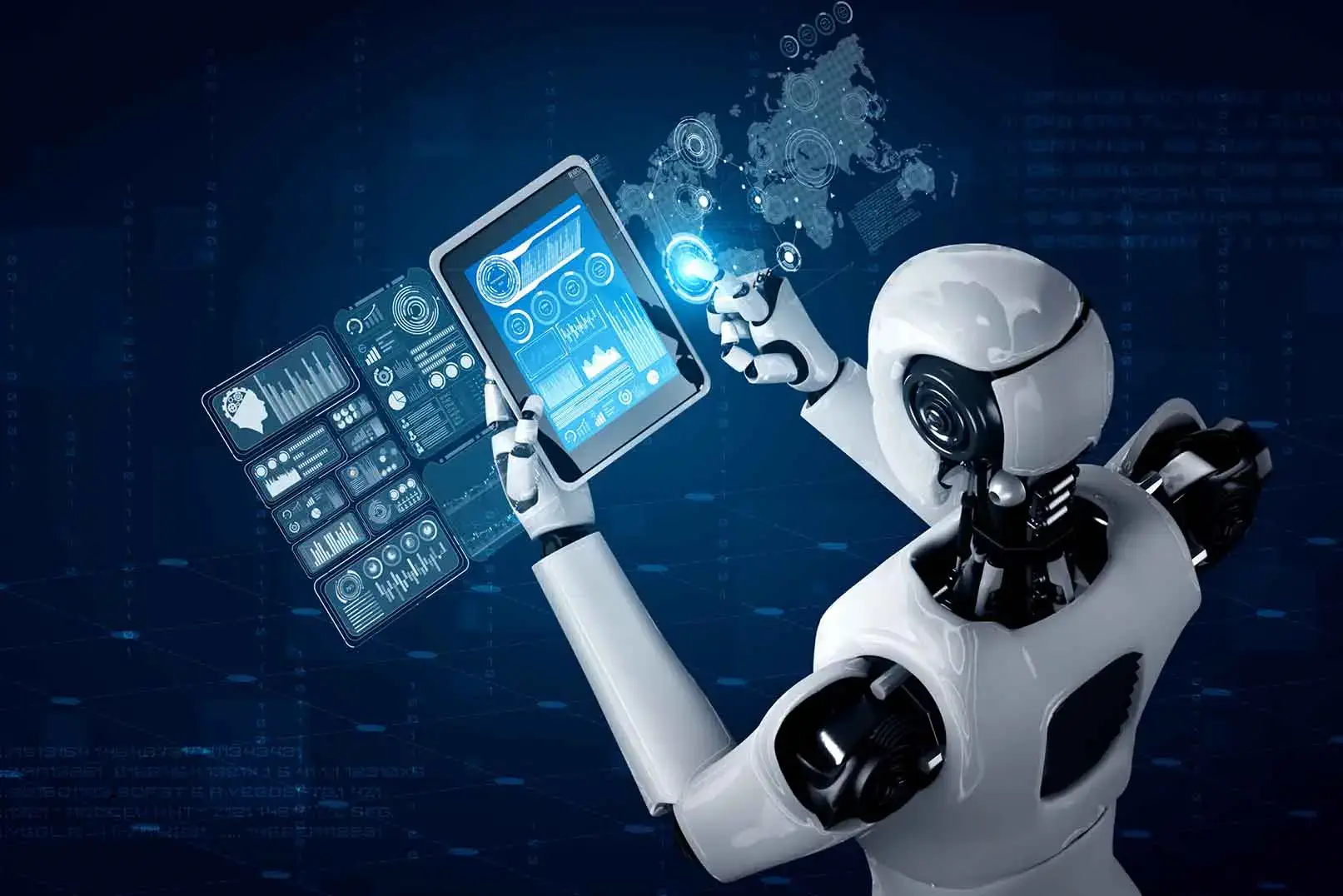
AI Tools for Project Management and Collaboration
Effective project management is crucial for ensuring that projects are completed on time and within budget. AI has revolutionized the way teams manage tasks, collaborate, and track progress. Whether you’re managing a remote team or handling a complex project, these AI tools will enhance your productivity and help you stay organized:
26. Trello – Trello is a visual project management tool that uses AI to suggest automation workflows, helping you manage tasks, track progress, and collaborate with team members more efficiently.
27. Asana – Asana integrates AI to help teams streamline workflows, prioritize tasks, and ensure that deadlines are met. Its smart task management features allow users to automate routine processes and focus on high-impact work.
28. Monday.com – This tool uses AI to predict project bottlenecks and suggest solutions, helping teams stay on track. Monday.com is ideal for both small businesses and large enterprises looking to manage multiple projects.
29. ClickUp – ClickUp integrates AI into task management, offering suggestions for optimizing workflows and tracking productivity metrics. It helps teams organize projects, assign tasks, and monitor deadlines in real-time.
30. Notion – Notion combines note-taking, project management, and collaboration features in one platform. Its AI features include intelligent task organization, content suggestions, and knowledge base creation for teams.
31. Wrike – Wrike uses AI to assist project managers in planning, scheduling, and tracking project progress. It provides predictive analytics to help anticipate risks and resource needs.
32. nTask – An all-in-one project management tool, nTask uses AI to automate task creation, tracking, and reporting. It’s especially useful for teams that need detailed project timelines and milestone tracking.
33. Smartsheet – Smartsheet leverages AI to enhance project planning and execution. It offers tools for workflow automation, data analysis, and real-time collaboration, making it a robust solution for large teams.
34. Hive – Hive integrates AI to provide data-driven insights into team performance and project timelines. It offers tools for task management, team communication, and project analytics.
35. Forecast – This AI-driven project management tool helps teams predict project timelines, allocate resources, and manage budgets. Its machine-learning algorithms provide forecasts for potential project outcomes.
36. MeisterTask – A visual task management tool, MeisterTask uses AI to suggest workflows and task dependencies, helping teams stay organized and efficient.
37. Zoho Projects – Zoho Projects incorporates AI to improve task management, team collaboration, and project reporting. It’s ideal for businesses looking for a comprehensive project management solution.
38. Teamwork – Teamwork uses AI to help teams plan, track, and deliver projects on time. It offers features for task management, time tracking, and collaboration across departments.
39. WorkOtter – An AI-powered project and portfolio management tool, WorkOtter helps teams prioritize tasks, manage resources, and predict project risks.
40. Proggio – This AI tool helps teams manage complex projects by providing timeline visualizations, task dependencies, and progress-tracking features.
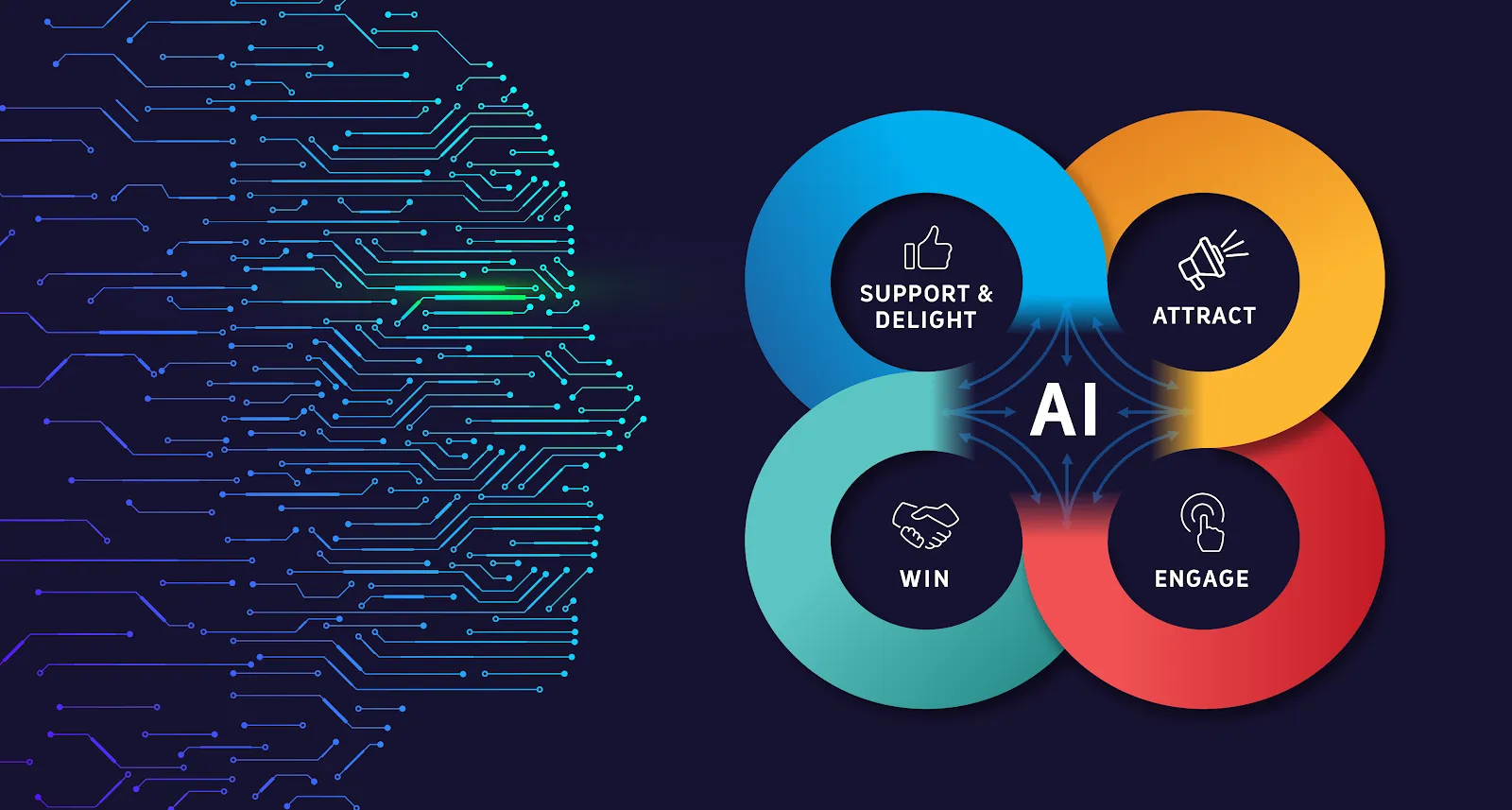
AI Tools for Marketing and Sales Automation
Marketing and sales have seen a major transformation with AI tools that help businesses automate customer engagement, lead generation, and data analysis. From email marketing to social media management, AI can take your marketing efforts to the next level, saving time while improving results. Below are some of the best AI marketing and sales tools available today:
41. HubSpot – HubSpot’s AI-powered marketing automation tools help businesses create personalized marketing campaigns, manage leads, and analyze customer behaviour. It offers solutions for email marketing, social media, and customer relationship management (CRM).
42. Marketo – Marketo is an AI-driven marketing automation platform that helps businesses optimize their marketing campaigns by offering predictive insights, lead scoring, and customer behaviour analysis.
43. Pardot – A Salesforce product, Pardot uses AI to enhance B2B marketing efforts by automating lead generation, email marketing, and campaign reporting.
44. Mailchimp – Mailchimp’s AI tools help marketers create personalized email campaigns, optimize send times, and analyze campaign performance for better engagement.
45. ActiveCampaign – ActiveCampaign combines email marketing, automation, and CRM functionalities. Its AI features include predictive sending, customer segmentation, and sales forecasting.
46. Hootsuite – Hootsuite integrates AI to help businesses manage and schedule social media posts, track engagement, and analyze performance across multiple platforms.
47. Sprout Social – This social media management tool uses AI to analyze audience engagement and offer insights on the best content and posting times for maximum reach.
48. Drift – Drift uses AI chatbots to automate customer conversations, helping businesses generate leads, answer customer queries, and schedule meetings in real-time.
49. AdRoll – An AI-driven marketing platform, AdRoll helps businesses optimize their digital ad campaigns, track conversions, and target specific audiences with precision.
50. Optimizely – Optimizely uses AI to help marketers run A/B tests, optimize website design, and create personalized customer experiences that boost conversion rates.
51. Conversica – This AI-driven sales assistant engages with leads through email or chat, helping businesses nurture prospects until they’re ready to speak to a salesperson.
52. Crimson Hexagon – A social media analytics tool, Crimson Hexagon uses AI to track brand sentiment, monitor trends, and analyze customer conversations across social platforms.
53. Salesforce Einstein – Salesforce’s AI tool helps businesses automate sales processes, predict customer behaviour, and deliver personalized experiences.
54. Seventh Sense – This tool uses AI to optimize email marketing by analyzing subscriber behaviour and predicting the best times to send emails for higher open rates.
55. Clearbit – Clearbit uses AI to provide businesses with detailed customer data, helping sales and marketing teams target the right audience with personalized outreach.
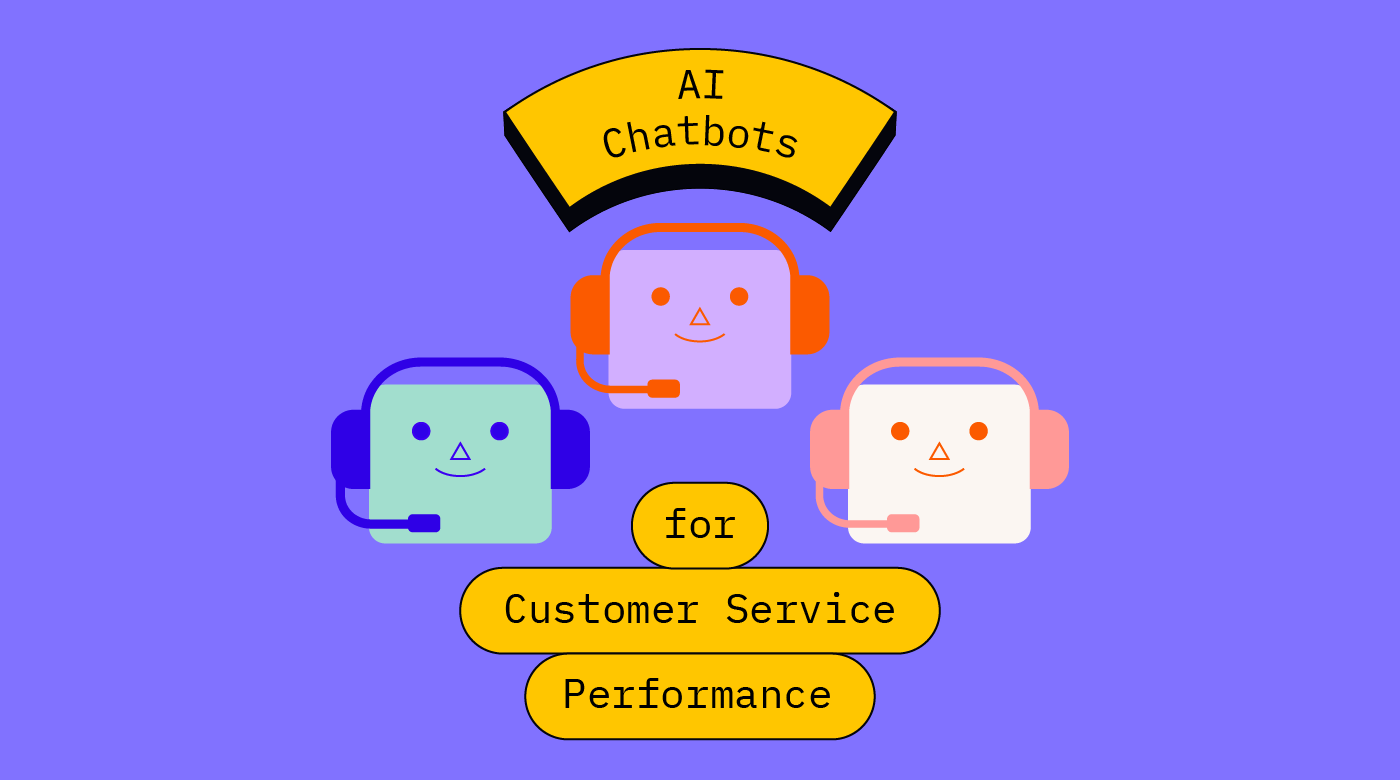
AI Tools for Customer Support and Chatbots
Customer service is one of the most crucial aspects of any business, and AI-powered tools are revolutionizing how companies interact with their customers. From chatbots that provide 24/7 support to AI-driven tools that analyze customer feedback, these tools can help businesses improve response times, enhance customer satisfaction, and reduce operational costs. Below are some of the best AI tools for customer support and chatbots:
56. Zendesk – Zendesk integrates AI to offer intelligent customer service solutions, including automated ticketing systems and chatbots that can handle customer inquiries in real-time.
57. Intercom – Intercom uses AI to help businesses engage with customers through live chat, automated messaging, and customer feedback surveys.
58. Tidio – Tidio is an AI-driven chatbot solution that helps businesses provide real-time customer support, generate leads, and manage customer queries 24/7.
59. LivePerson – LivePerson uses AI to power conversational commerce, allowing businesses to communicate with customers through messaging, voice, and chatbots.
60. Freshdesk – Freshdesk’s AI features include ticket automation, customer sentiment analysis, and chatbots that help businesses manage customer interactions more efficiently.
61. Drift – Drift’s AI chatbots help businesses provide personalized customer support, generate leads, and schedule meetings, improving the overall customer experience.
62. ManyChat – ManyChat uses AI to automate conversations on platforms like Facebook Messenger, helping businesses engage with customers and answer queries without human intervention.
63. MobileMonkey – MobileMonkey uses AI to automate marketing and customer support on messaging platforms like Facebook Messenger, SMS, and WhatsApp.
64. Ada – Ada is an AI-powered chatbot platform that helps businesses create personalized, automated customer interactions across various channels, including web and mobile apps.
65. Chatfuel – Chatfuel is an AI-driven chatbot builder for Facebook Messenger, allowing businesses to automate customer support, lead generation, and sales.
66. Botsify – Botsify allows businesses to create AI-powered chatbots for websites, Facebook, and other platforms, helping automate customer service and sales processes.
67. Re: amaze – This customer support platform uses AI to automate ticketing, live chat, and customer engagement, making it easier for businesses to manage large volumes of inquiries.
68. Olark – Olark integrates AI-driven live chat features that help businesses manage customer inquiries, collect feedback, and analyze chat data for improved customer support.
69. Kustomer – Kustomer uses AI to help businesses manage customer interactions across multiple channels, offering personalized support and predictive analytics to improve customer service.
70. Gladly – This customer service platform integrates AI to offer omnichannel support, including chatbots that assist customers across email, SMS, and social media platforms.

AI Tools for Data Analysis and Insights
Data is the backbone of modern decision-making. However, manually analyzing vast amounts of data can be overwhelming and time-consuming. AI-powered tools for data analysis allow businesses to quickly interpret complex datasets, identify trends, and make data-driven decisions. These tools use machine learning algorithms, predictive analytics, and natural language processing (NLP) to uncover valuable insights. Below are some of the best AI tools for data analysis that can help you transform raw data into actionable information.
71. Tableau – Tableau leverages AI to provide advanced data visualization, allowing users to create interactive and shareable dashboards. It’s widely used for business intelligence, making it easier to spot trends and key performance indicators (KPIs).
72. Microsoft Power BI – Power BI uses AI to connect data from various sources and generate insights through dynamic reports. It provides predictive analytics, natural language queries, and data visualization tools that are essential for business analytics.
73. RapidMiner – This AI-powered platform simplifies data science processes, including data preparation, machine learning, and model validation. It helps users uncover trends and predict future outcomes based on historical data.
74. Alteryx – Alteryx is an AI-based tool designed for data blending and advanced analytics. It allows users to combine multiple data sources, apply predictive modelling, and automate the data analysis process.
75. IBM Watson Analytics – IBM Watson offers AI-driven insights by automatically analyzing large datasets. It uses NLP to help users explore data and generate reports with minimal effort.
76. Google Cloud AI Platform – Google’s AI platform allows businesses to run machine learning models, analyze data, and gain insights using tools like TensorFlow. It’s highly scalable and suitable for handling big data projects.
77. Looker – Looker is an AI-powered data analytics platform that integrates with existing databases and offers advanced data modelling, reporting, and visualization features.
78. Sisense – Sisense combines AI and business intelligence to deliver actionable insights from complex data. It allows users to run predictive analytics, automate reporting, and create custom dashboards.
79. Domo – Domo offers AI-powered data visualization and business intelligence solutions. It provides real-time data analysis and visualization, helping businesses make fast, informed decisions.
80. H2O.ai – This open-source AI platform enables users to build predictive models and run machine learning algorithms on their datasets. It’s ideal for businesses looking to integrate AI into their analytics processes.
81. DataRobot – DataRobot automates the machine learning lifecycle, from data preprocessing to model deployment. It’s designed to make AI accessible for both technical and non-technical users, helping businesses leverage data for decision-making.
82. KNIME – KNIME is a data analytics platform that integrates AI to offer advanced machine learning capabilities, data blending, and predictive analytics. It’s highly customizable and widely used by data scientists.
83. Qlik Sense – Qlik Sense uses AI to enable self-service data visualization and reporting. It helps users identify hidden trends, discover correlations, and automate data discovery processes.
84. SAS Visual Analytics – SAS provides AI-driven data analytics tools, enabling users to analyze data, build predictive models, and visualize insights. Its machine-learning capabilities make it suitable for large-scale data analysis.
85. Mode Analytics – Mode combines AI with business intelligence to offer real-time analytics and interactive dashboards. It allows users to collaborate on data analysis, making it a great tool for teams.
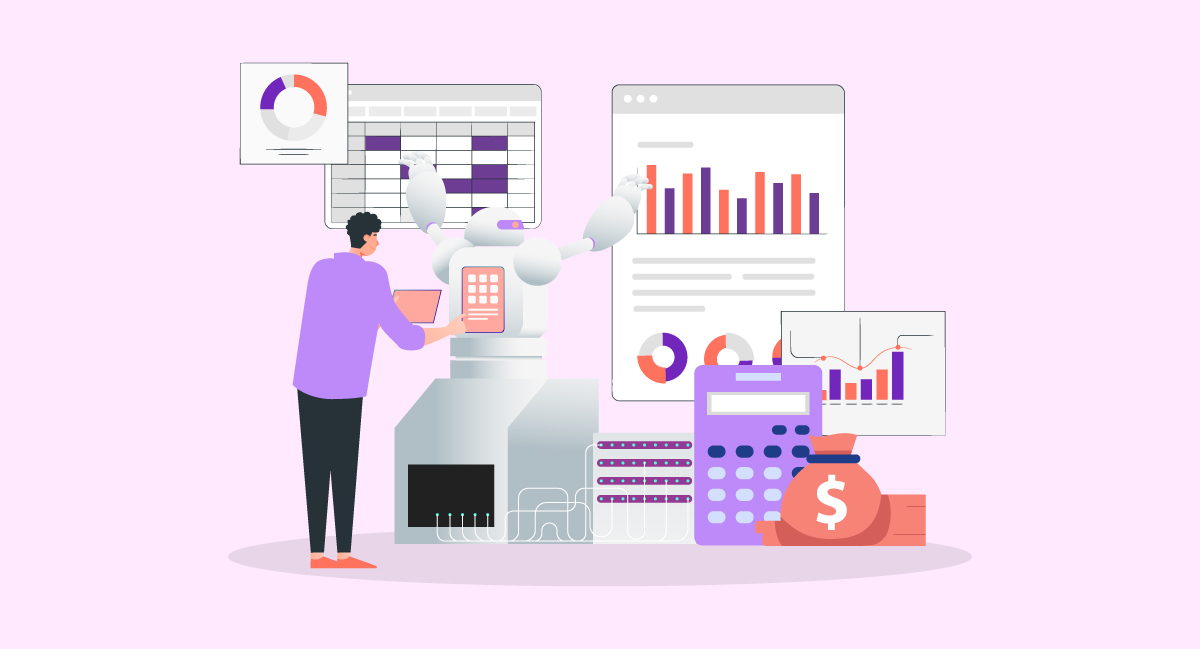
AI Tools for Finance and Accounting
Managing finances is one of the most critical aspects of any business. AI tools for finance and accounting can automate time-consuming tasks like bookkeeping, tax preparation, and financial forecasting, allowing companies to focus on strategic decision-making. By using AI-driven algorithms, these tools provide real-time insights into financial health, detect anomalies, and help businesses comply with regulations. Here are some of the top AI tools for finance and accounting:
86. Xero – Xero uses AI to automate bookkeeping tasks, manage invoices, and generate real-time financial reports. It’s a popular choice for small and medium-sized businesses.
87. QuickBooks – QuickBooks automates financial management processes, including expense tracking, invoicing, and tax preparation. It offers AI-driven insights to help businesses stay on top of their finances.
88. Zoho Books – Zoho Books is an AI-powered accounting tool that helps businesses automate bookkeeping, manage cash flow, and generate financial reports.
89. Botkeeper – Botkeeper combines AI and human assistance to offer automated bookkeeping services. It’s ideal for businesses looking to streamline their accounting processes.
90. Kashoo – Kashoo leverages AI to help small businesses manage their finances, including invoicing, expense tracking, and tax preparation. It offers real-time financial insights and automated reports.
91. FreshBooks – FreshBooks uses AI to automate invoicing, expense tracking, and time management, making it easier for freelancers and small businesses to manage their finances.
92. Wave Accounting – Wave provides AI-driven tools for small businesses to manage accounting, invoicing, and receipts. It also offers features for automating payroll and tax management.
93. Expensify – Expensify uses AI to automate expense reporting and tracking. It helps businesses and individuals manage receipts, create expense reports, and streamline reimbursement processes.
94. Fyle – Fyle is an AI-powered expense management tool that simplifies the process of tracking and reporting business expenses. It integrates with various accounting software to automate expense categorization and reconciliation.
95. AvidXchange – AvidXchange uses AI to automate accounts payable processes, including invoice processing, payment approvals, and reporting. It’s ideal for businesses with high volumes of transactions.
96. Plastiq – Plastiq leverages AI to help businesses manage payments and cash flow by enabling them to pay vendors using credit cards, even when the vendor doesn’t accept cards.
97. Gusto – Gusto uses AI to automate payroll, benefits administration, and tax compliance for small businesses. It also offers features for managing employee benefits and HR tasks.
98. BlackLine – BlackLine provides AI-driven tools for automating accounting workflows, including financial close processes, account reconciliations, and intercompany transactions.
99. Receipt Bank – Receipt Bank uses AI to extract data from receipts and invoices, automating bookkeeping processes for businesses. It integrates with various accounting platforms to streamline financial workflows.
100. Tipalti – Tipalti is an AI-powered global payables automation platform. It helps businesses manage payments, compliance, and tax reporting while providing real-time visibility into financial operations.
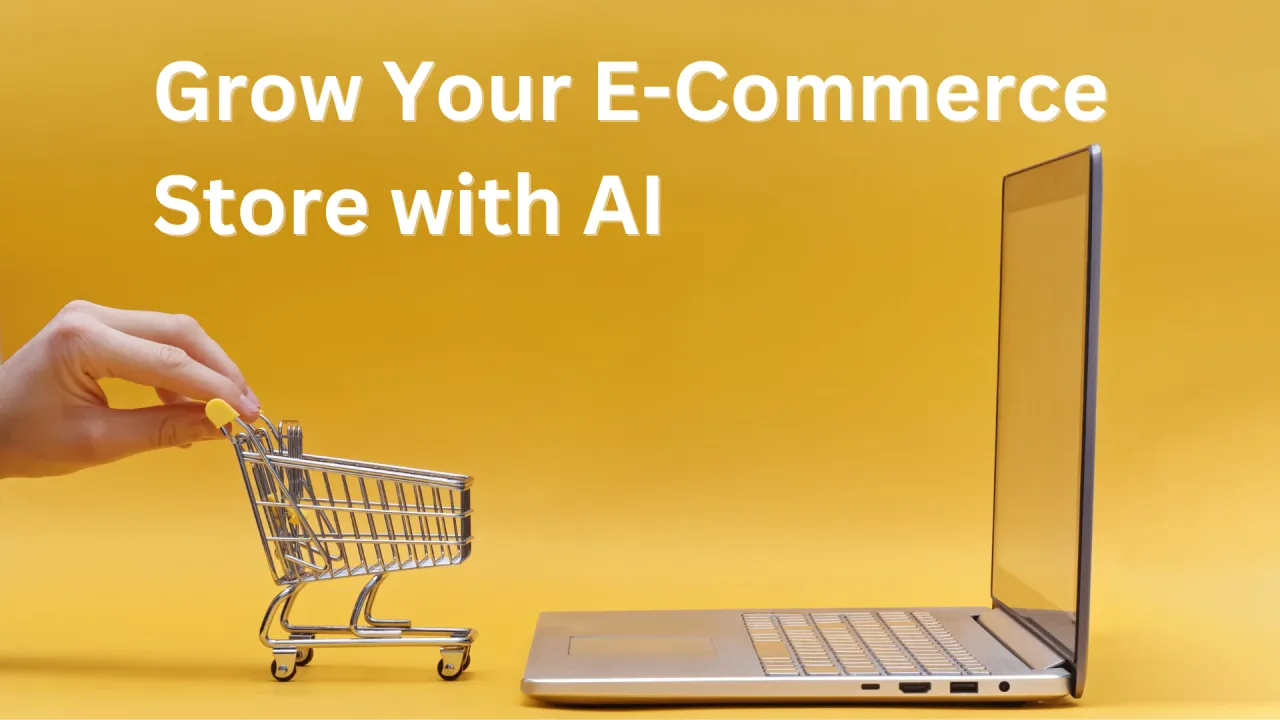
AI Tools for E-commerce and Retail
E-commerce has been transformed by AI, with tools that help online retailers optimize customer experiences, manage inventory, and improve marketing strategies. From personalized product recommendations to automated customer service, AI tools enhance every aspect of the online shopping experience. Below are some of the best AI tools for e-commerce and retail businesses:
101. Shopify – Shopify integrates AI to help e-commerce businesses manage online stores, automate marketing, and optimize customer experiences. It offers tools for product recommendations, sales forecasting, and customer support.
102. Algolia – Algolia uses AI-powered search technology to improve product discovery on e-commerce sites. It helps customers find relevant products faster, enhancing user experience and boosting sales.
103. Yotpo – Yotpo uses AI to generate customer reviews, user-generated content, and visual marketing for e-commerce businesses. It helps build trust and improve brand credibility.
104. Nosto – Nosto leverages AI to offer personalized shopping experiences by analyzing customer behaviour and suggesting products in real time. It’s ideal for e-commerce businesses looking to increase conversion rates.
105. Clerk.io – Clerk.io uses AI to personalize product recommendations, search results, and email marketing for online retailers. It helps businesses increase customer engagement and sales.
106. Phrasee – Phrasee is an AI-driven tool that helps e-commerce businesses create optimized email marketing campaigns. It uses NLP to generate compelling subject lines and copy that drives higher engagement.
107. Zaius – Zaius combines AI with customer relationship management (CRM) to help e-commerce businesses understand customer behaviour and personalize their marketing efforts.
108. LoyaltyLion – LoyaltyLion uses AI to help e-commerce businesses create and manage customer loyalty programs. It analyzes customer data to offer personalized rewards and incentives.
109. Emarsys – Emarsys is an AI-driven marketing automation platform designed for e-commerce businesses. It helps brands deliver personalized email, SMS, and social media campaigns based on customer behaviour.
110. Vue.ai – Vue.ai uses AI to create personalized shopping experiences by analyzing customer preferences and browsing behaviour. It offers tools for visual search, product recommendations, and personalized emails.
111. Granify – Granify uses machine learning to analyze customer behaviour and predict their likelihood of making a purchase. It provides real-time interventions, such as personalized offers, to convert more visitors into buyers.
112. Optimizely – Optimizely uses AI to help e-commerce businesses optimize their website and mobile app experiences. It provides A/B testing and personalization features to improve conversion rates.
113. Persado – Persado uses AI to create emotionally engaging marketing messages for e-commerce businesses. It analyzes customer data to generate personalized content that resonates with different audiences.
114. ShipBob – ShipBob uses AI to automate order fulfilment and inventory management for e-commerce businesses. It helps online retailers optimize their shipping processes and reduce delivery times.
115. Recombee – Recombee is an AI-powered recommendation engine that helps e-commerce businesses provide personalized product suggestions based on customer preferences and browsing history.
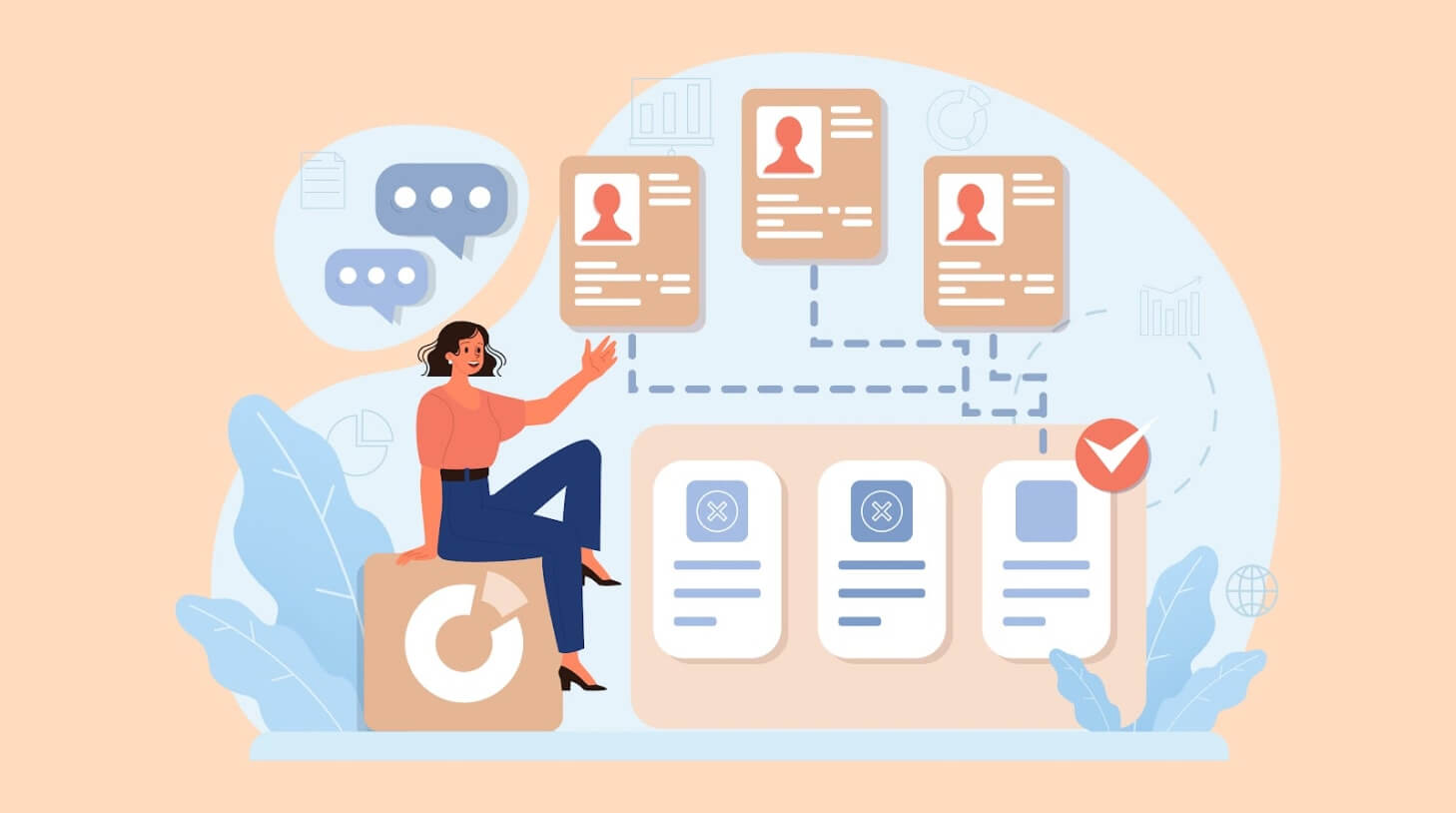
AI Tools for Human Resources and Recruitment
AI is revolutionizing human resources (HR) and recruitment by streamlining processes such as candidate sourcing onboarding, and performance management. These AI tools help HR professionals automate repetitive tasks, reduce bias in hiring, and improve employee engagement. Below are some of the best AI tools for HR and recruitment:
116. LinkedIn Talent Insights – LinkedIn Talent Insights uses AI to help recruiters find the best candidates by analyzing profiles, job postings, and company data. It provides insights into talent pools and market trends.
117. HireVue – HireVue uses AI to assess candidates through video interviews, analyzing speech patterns and facial expressions to predict job performance. It helps companies screen large volumes of applicants efficiently.
118. Pymetrics – Pymetrics uses neuroscience and AI to match candidates with jobs based on their cognitive and emotional abilities. It helps reduce bias in the hiring process and improve diversity.
119. Hiretual – Hiretual is an AI-powered recruiting tool that helps recruiters source candidates from various platforms and databases. It provides AI-driven insights into candidate availability and fit for specific roles.
120. Workday – Workday uses AI to help HR teams manage employee performance, track workforce analytics, and optimize talent management processes.
121. Breezy HR – Breezy HR integrates AI to automate candidate sourcing, interview scheduling, and communication. It helps HR teams streamline the recruitment process and improve candidate experience.
122. X0PA AI – X0PA AI is a talent acquisition platform that uses AI to reduce bias in recruitment, predict candidate success, and improve hiring decisions.
123. Entelo – Entelo uses AI to identify and engage with potential candidates based on their skills, experience, and job preferences. It offers predictive analytics to help recruiters make data-driven hiring decisions.
124. Beamery – Beamery uses AI to provide talent relationship management tools, helping businesses build talent pipelines, engage with candidates, and improve recruitment outcomes.
125. Eightfold.ai – Eightfold.ai is an AI-powered talent intelligence platform that helps businesses identify internal and external candidates, manage talent acquisition, and improve employee retention.
126. SmartRecruiters – SmartRecruiters uses AI to help HR teams source candidates, conduct interviews, and evaluate applicants. It offers features for automated candidate screening and job matching.
127. Leoforce Arya – Arya is an AI recruiting tool that helps HR professionals find and engage with the best candidates for open positions. It offers predictive hiring analytics and automates candidate outreach.
128. Ideal – Ideal uses AI to screen resumes, conduct assessments, and rank candidates based on their fit for specific roles. It helps businesses improve the efficiency and accuracy of their hiring processes.
129. Taleo – Taleo is an AI-powered recruitment platform that helps businesses manage job postings, candidate sourcing, and employee onboarding. It provides predictive analytics to optimize talent acquisition.
130. Zenefits – Zenefits integrates AI to automate HR tasks like benefits administration, payroll, and compliance. It helps businesses manage employee records and streamline HR workflows.
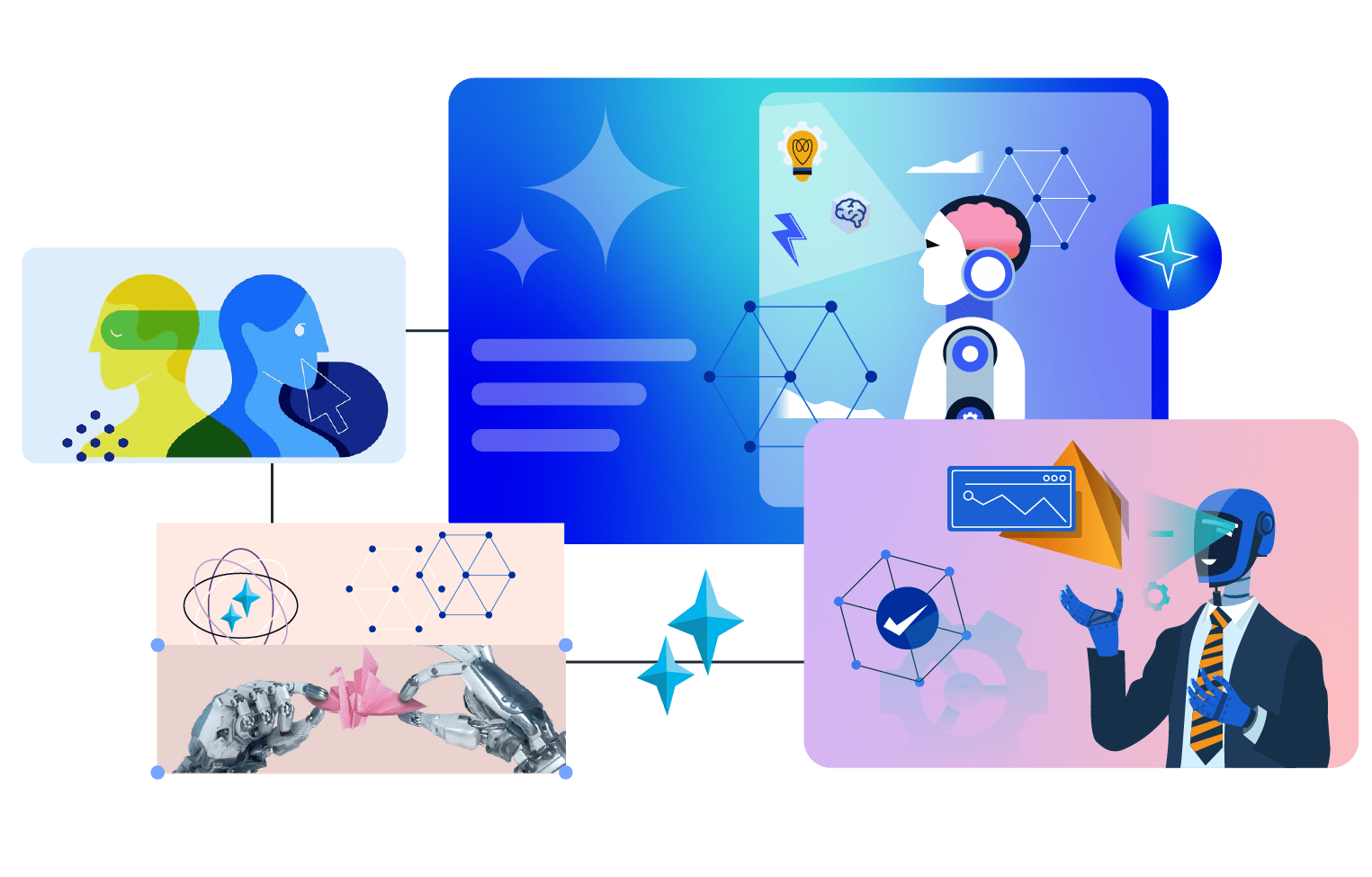
AI Tools for Customer Experience and Engagement
In an age where customer satisfaction drives business success, AI tools have become indispensable for enhancing customer experiences. From personalized marketing strategies to real-time support through AI chatbots, businesses are increasingly relying on artificial intelligence to engage with their customers. These AI-driven tools allow companies to offer seamless, personalized interactions that improve customer loyalty and retention. Below are some of the best AI tools to boost customer experience and engagement:
131. HubSpot Service Hub – HubSpot Service Hub integrates AI to help businesses manage customer relationships, track customer interactions, and provide personalized support. Its AI-driven automation allows for smoother customer service workflows, enabling faster response times and higher customer satisfaction.
132. Zendesk – Zendesk uses AI to automate ticket management and customer queries through its chatbots, providing 24/7 support to customers. It analyzes customer behaviour to offer personalized recommendations, enhancing customer experience.
133. Intercom – Intercom’s AI-driven chatbots allow businesses to engage customers through personalized messaging, automated responses, and customer support solutions. It’s particularly effective in helping companies maintain real-time conversations with customers across web, mobile, and social channels.
134. Tidio – Tidio is an AI-powered customer support tool that combines live chat with chatbots, offering businesses the ability to provide real-time support to customers. It also integrates email and messenger services, streamlining communication channels for better customer engagement.
135. Freshdesk – Freshdesk uses AI to power its virtual assistant Freddy, which automates ticketing, resolves common customer issues, and provides predictive analytics to improve support efficiency.
136. Drift – Drift focuses on conversational marketing, using AI-driven chatbots to engage with website visitors, answer queries, and schedule sales meetings. Its real-time engagement capabilities help businesses convert leads into customers more effectively.
137. LivePerson – LivePerson uses AI to enable conversational commerce, helping businesses interact with customers via chat and messaging apps. Its AI assistants can handle routine queries, freeing up human agents for more complex issues.
138. ManyChat – ManyChat automates conversations on social media platforms like Facebook Messenger and Instagram. Businesses can use AI to interact with customers, provide support, and promote products directly through messaging apps.
139. Ada – Ada’s AI-powered chatbot platform allows businesses to offer personalized customer interactions across multiple channels. It automates customer service processes, helping companies improve response times and reduce operational costs.
140. Kustomer – Kustomer uses AI to unify customer interactions across different platforms, helping businesses provide more personalized and seamless customer support. It offers automated workflows and predictive analytics to enhance the customer experience.
141. Gladly – Gladly uses AI to provide omnichannel customer support, allowing businesses to manage conversations across email, SMS, social media, and chat in one platform. It focuses on delivering a personalized customer experience by keeping track of each customer’s preferences and past interactions.
142. Genesys – Genesys provides AI-driven solutions for contact centres, helping businesses manage customer interactions more efficiently through voice and chatbots. Its AI capabilities include sentiment analysis and predictive routing to improve customer satisfaction.
143. Cogito – Cogito uses AI to analyze voice interactions in real-time, helping customer service agents improve their communication style. Its AI listens for emotional cues, offering suggestions for better engagement and empathy during conversations.
144. Yext – Yext uses AI to manage customer data across digital channels, ensuring consistency and accuracy in customer interactions. Its AI tools help businesses optimize their online presence and improve customer engagement through better content management and query resolution.
145. Zoho Desk – Zoho Desk integrates AI to enhance customer support through automation, ticket management, and real-time assistance. It offers AI-driven analytics to help businesses measure the efficiency of their customer service and make data-driven improvements.

AI Tools for Cybersecurity and Fraud Detection
As businesses become more reliant on digital technologies, the need for robust cybersecurity solutions has grown exponentially. AI tools play a crucial role in protecting sensitive data, detecting fraud, and preventing cyberattacks. These AI-powered tools help identify potential threats, automate security processes, and reduce the risk of breaches. Below are some of the best AI tools for cybersecurity and fraud detection:
146. Darktrace – Darktrace uses AI and machine learning to detect cybersecurity threats in real-time. Its AI-powered platform analyzes network traffic, identifying anomalous behaviour and preventing cyberattacks before they occur.
147. CrowdStrike – CrowdStrike uses AI to offer endpoint protection by analyzing data across multiple devices to detect and respond to potential threats. It uses machine learning algorithms to predict and prevent cyberattacks.
148. Symantec Endpoint Protection** – Symantec leverages AI to identify and block malicious activity across devices. Its AI-driven platform offers real-time threat intelligence, helping businesses secure their systems against evolving cyber threats.
149. Sift Science – Sift Science uses AI to help businesses detect and prevent fraud in real-time. It analyzes large volumes of transactional data to identify patterns associated with fraudulent activities, helping companies reduce chargebacks and protect customer data.
150. Fortinet – Fortinet integrates AI into its cybersecurity solutions to detect advanced threats, prevent data breaches, and automate security operations. Its AI tools are designed to adapt to evolving threats and provide continuous protection.
151. Vectra AI – Vectra uses AI to detect cyberattacks across cloud, data centres, and enterprise networks. Its machine learning models identify anomalous behaviour and provide early warnings of potential breaches.
152. Cylance – Cylance uses AI to prevent cyberattacks by analyzing data patterns and predicting future threats. Its AI-powered endpoint protection platform blocks malware and ransomware attacks before they can cause damage.
153. Feedzai – Feedzai is an AI-driven fraud detection platform that helps businesses in the financial industry monitor transactions and prevent fraudulent activities. It uses machine learning algorithms to analyze behavioural patterns and detect anomalies.
154. Splunk – Splunk leverages AI to help businesses monitor and analyze security events in real-time. It uses machine learning to detect potential threats and offers insights into network performance and security risks.
155. LogRhythm – LogRhythm’s AI-driven platform helps businesses detect security incidents by analyzing logs, network data, and user behaviour. It offers real-time alerts and automated responses to prevent breaches.
156. Darktrace Antigena – Antigena, a component of Darktrace, uses AI to provide autonomous threat response by identifying and neutralizing cyber threats in real time. It acts as an immune system for networks, protecting against advanced attacks.
157. Shape Security – Shape Security uses AI to protect websites and mobile apps from fraud and cyberattacks. Its AI-driven platform analyzes user behaviour to detect and block malicious activities like credential stuffing and account takeovers.
158. Deep Instinct – Deep Instinct uses deep learning algorithms to prevent cyberattacks by predicting and identifying potential threats. Its AI-driven platform can detect zero-day attacks and ransomware, providing advanced security solutions for businesses.
159. Zimperium – Zimperium provides AI-powered mobile security solutions, detecting threats on mobile devices in real-time. Its AI platform identifies malicious apps, phishing attempts, and device vulnerabilities, protecting users from cyber threats.
160. Onfido – Onfido uses AI to verify identities and prevent fraud in online transactions. It analyzes facial biometrics and identity documents to ensure that users are who they claim to be, helping businesses prevent account fraud.
Conclusion
In a world where efficiency and innovation are key to success, artificial intelligence is revolutionizing how we approach daily tasks and complex operations alike. From transforming content creation and enhancing customer experiences to advancing medical diagnosis and cybersecurity, AI tools have become indispensable across industries. The 150+ AI tools we’ve explored throughout this article demonstrate the sheer versatility of artificial intelligence, offering powerful solutions that boost productivity, automate workflows, and make data-driven decisions possible.
For businesses, integrating AI tools into operations is no longer optional—it’s essential to stay competitive and agile in today’s fast-paced environment. AI has enabled businesses to streamline their processes, improve customer satisfaction, and make smarter, more informed decisions. For individuals, AI offers productivity enhancements that allow them to work faster, think creatively, and manage tasks with ease.










